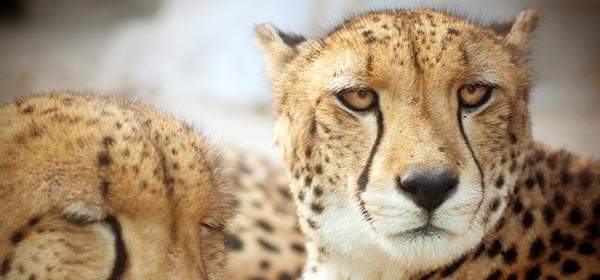Safaris are often on the top of people’s travel to do lists, but with all the furore about hunting of late, how can you be sure that the one you choose is ethical? Lee Mylne highlights what you should be on the lookout for when booking your trip.
Q. Dave
I have always wanted to go on safari and now that I’m in a position to be able to afford it, I’m worried about how ethical the companies are that run such trips. Obviously I’m not looking to go hunting, but are there some companies that are better than others? Is there anything I should look for in particular?
A. Dave, it is great that you want to do the right thing on safari! There’s been quite a bit of publicity recently about game ‘farms’ and other unethical practices by safari tour operators in Africa, so it’s really important to do some homework before you book one.
There is a large number of organisations working in partnership with tourism on conservation initiatives – but are all projects ethical and sustainable? It can be hard to work out – at least before you book and travel – which safari operator, sanctuary or lodge is actually doing the right thing, or if they simply have a good marketing strategy.
My best advice is to ask a lot of questions of the tour operator with whom you are thinking about travelling. Most of the best ones will have information about ethical practices or responsible tourism on their websites, but if you are looking at one that does not, then tell them your concerns and ask what steps they take to follow ethical practice.
Most reputable travel companies are quite happy to provide any information they can, such as examples of conservation and community issues and what steps they take to address those. Ask them to send you a copy of their policy on these issues – and if they can’t, you’ll have your answer.

Avoid tours that include walking with lions (which apart from the ethical issues, just sounds plain scary to me) and riding elephants, and opt for a safari experience that will involve watching the wildlife in their natural habitat.
Look for conservation projects that are carried out with nationally or internationally recognised organisations and that take issues of land and wildlife into account. Another positive indicator are those that have been recognised by the World Travel and Tourism Council’s Tourism for Tomorrow Awards – for tourism businesses which successfully integrate sustainable tourism best practices into their planning and operations – or the World Responsible Tourism Awards.
One example is Asilia, which operates safaris and lodges in Kenya and Tanzania, and in 2014 won the Tourism for Tomorrow Business Award. Asilia was the first sustainable safari/lodge company in Africa to receive a five-star rating for sustainability from Global Impact Investing Rating System (GIIRS).
World Expeditions has lots of information about its responsible tourism code on its website. It does not allow lion cub petting or photo opportunities, volunteering with lions in captivity, or walking with lions – all of which support the “canned hunting” industry.
Other sustainability practices that World Expeditions follows include encouraging travellers to avoid buying products made from endangered species, hard woods or ancient artefacts, and varying the safari routes to lessen the “tourist footprint”.
World Expeditions’ Community Project Travel experiences also give you the chance to do some volunteer work with a community in Tanzania before continuing on to the game parks of Lake Manyara, Tarangire and the Ngorongoro Crater.
Another reputable company, G Adventures has an “animal welfare policy” (outlined on its website) which applies to all its trips, including an eight-day Kenya safari that involves the chance to learn rhino conservation from the National Geographic-associated Kenya Wildlife Service.
Great Plains Conservation, which has nine luxury camps in Botswana and Kenya, is a leader in conservation tourism and gives guests the chance to be involved in conservation projects such as Rhinos Without Borders and in community development initiatives.
Friends of mine recently did a safari in South Africa at Sabi Sabi Private Game Reserve, which is adjacent to Kruger National Park, and they loved it. Sabi Sabi is also strongly connected to its local community, and its website has information about its philosophy and conservation commitment on it.
Good luck with your search for the right safari, Dave. It’s been many years since I did one in Kenya but the thrill of ticking off the ‘big five’ in their natural habitat has never faded. Don’t forget to take your camera!
More information:
www.asiliaafrica.com
www.gadventures.com.au
www.greatplainsconservation.com
www.sabisabi.com
www.worldexpeditions.com
Do you have a travel question for Lee? If so, email your Travel SOS to newsletters@yourlifechoices.com.au
Related articles:
Finding the magic in Morocco
Farmstay experiences
Knocked out by Noosa

